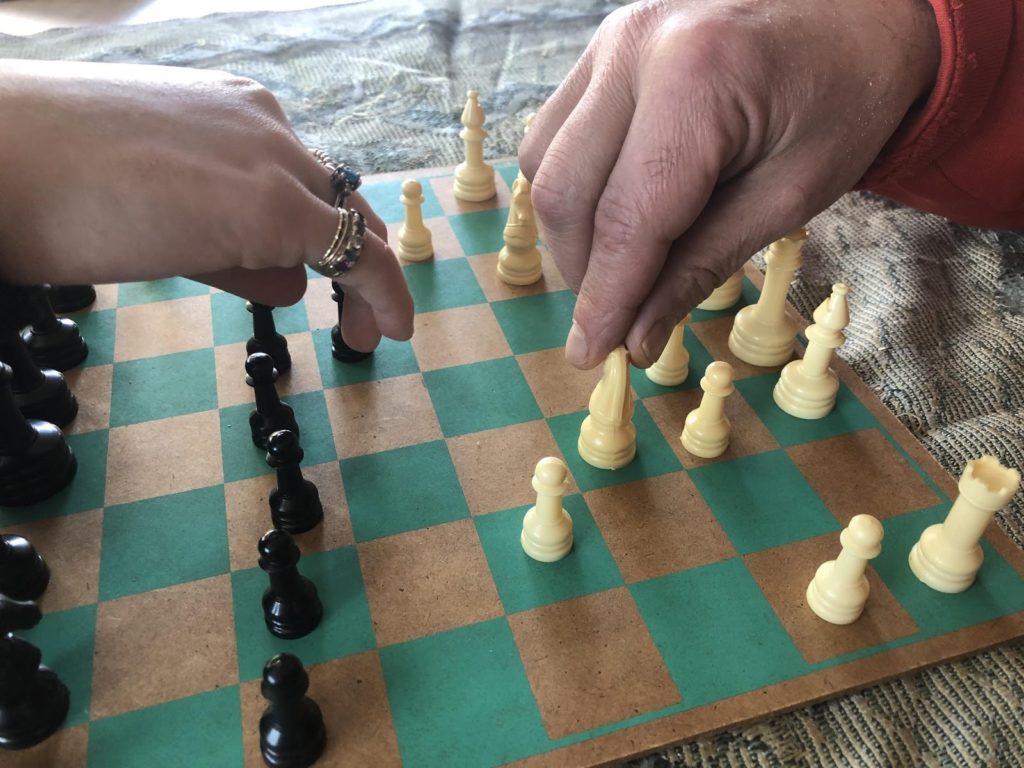Beth Harmon shatters the gender barrier competing at the highest level of chess

The female lead in The Queen’s Gambit rises to the challenge of being on top in the male-dominated world of chess.
Beth Harmon, played by Anya Taylor-Joy in the fictional historical drama miniseries written and directed by Scott Frank, is driven by passion and determination to compete at the same level — despite an uneven playing field. She is not afraid to show her intelligence and use her opponents’ surprise against them in order to win.
As a teenager, Harmon signs herself up for a chess tournament. The moment she enters the competition, she sticks out like a sore thumb. She never doubts herself, even though she is seen as unworthy and strange by the male organizers because she is a woman.
Dimitrios Latsis, a film studies professor at Ryerson, refers to Harmon’s strength as “soft power.”
“She uses her mind rather than her might to plan her strategies in chess,” Latsis says.
Harmon is an American girl who represents something different in being able to overcome not only the fact that she is a girl, Latsis says, but that she is one during the time period of the late 1950s to early 1960s.
Harmon remains focused on succeeding against her male competitors and rises to the top of the chess world. Natalia Holeksa, a Ryerson alumni who works in the creative arts industry, found the series inspiring, especially because of Harmon’s achievements.
In Canada and internationally, Holeksa says women are still striving to reach equality in the world. “It’s so important to show a woman lead trumping all these stereotypes, making it to the top,” she says.
Female empowerment does not mean being strong and noble all the time. An important part of empowerment is the portrayal of the fully human, complex and vulnerable side of the individual.
Harmon overcomes drug and alcohol addiction with support from her friends. Not only does she break into the chess world, but she also breaks out of her self-destructive addictions.
Seeing Harmon’s success overcoming her obstacles gives Holeksa the confidence to rise up through the ranks of her current career.
“It’s important to show that it doesn’t matter who you are, doesn’t matter what race, what gender, so long as you’re determined, so long as you work for it, you can achieve anything,” says Holeksa.
Rymm Wadhwa, director of events at Ryerson’s chess club, acknowledges that the stereotype that women are not as smart as men still exists. However, when Wadhwa does outreach for the chess club, she also finds that women are less interested in chess than men.
“For every nine men, there is one woman in the chess club,” says Wadhwa.
Kellyann Murphy, a film production manager and line producer, is usually the only woman in the production crew.
Murphy feels empowered, but at the same time disappointed, to be the only woman in a profession dominated by men.
She has been involved in producing commercials, independent films, television series and documentaries. As manager and line producer, Murphy enjoys her role as the nucleus that controls and regulates every aspect of production.
She says mentoring is an important and helpful way to support and guide younger women to embrace the physical and technical side of the film industry.
Murphy had been in positions where she had someone to lead her, but also in positions where she had no help.
“It’s pretty daunting, scary and hard when left to your own devices. When you are new, no one will give you a break,” she says.
Kamal Al-Solaylee, a Ryerson journalism professor says The Queen’s Gambit’s producers had the adaptation rights since 1992. Al-Solaylee said the fact that it was finally produced in 2020 — nearly three decades later — is a testament to their perseverance.
“I’m baffled by the fact that stories of powerful and smart young women outside of the superhero genre are the exception and not the norm. It doesn’t reflect the world we live in,” says Al-Solaylee.
